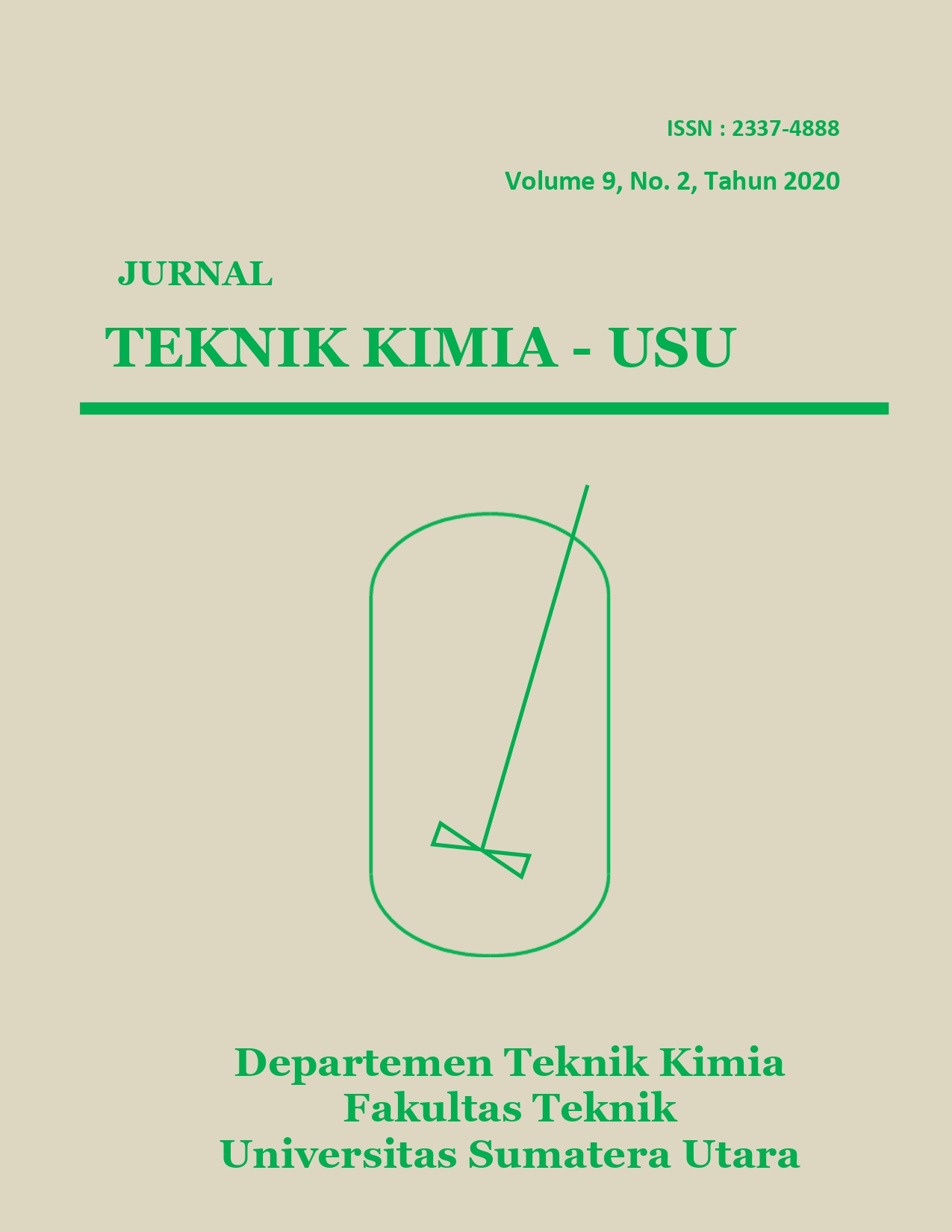Perbandingan Metode Microwave Hydrodiffusion and Gravity (MHG) dan Microwave Steam Diffusion (MSDf) untuk Mengekstrak Minyak Atsiri dari Kulit Jeruk (Citrus aurantium L.)
DOI:
https://doi.org/10.32734/jtk.v9i2.4302Keywords:
orange peel , microwave, essential oil, MHG, MSDfAbstract
Orange production in 2020 projected to reach more than 3.2 million tons, with an estimated growth of 4.93% per year. As a result, large amounts of orange peel are available as a by-product and are treated as waste, creating environmental problems. This problem can be turned into potential if essential oils can be extracted from orange peels. The purpose of this study is to compare the methods of Microwave Hydrodiffusion and Gravity (MHG) and Microwave Steam Diffusion (MSDf) in terms of extraction time velocity, yield, electricity consumption, environmental impact (CO2 gas emissions) and their chemical composition. In this study, 300 grams of fresh orange peel (Citrus aurantium L) used with three microwave power variations: 136 watt, 264 watt, and 440 watt and extraction time of 15 minutes, 30 minutes, 45 minutes, and 60 minutes. The MSDf method produces yields faster than the MHG method at an optimal power of 264 W. In the 20th minute, the MSDf method produces an essential oil yield of 1.95%, while the MHG method produces 1.93% yield at the 40th minute. The MSDf method provides the number of oxygenated compounds (1.4%) is higher than the MHG method (1.12%). This study shows that the MSDf method can produce better quality oils as like as the MHG method. Based on the electricity consumed ratio, the MSDf method is 50% more energy-efficient than the MHG method. Emissions of CO2 gas released into the air in the MSDf method (0.07 kg) are also less than MHG (0.14 kg), so the impact on the environment is not too significant.
Downloads
Downloads
Published
Issue
Section
License
Copyright (c) 2020 Jurnal Teknik Kimia USU

This work is licensed under a Creative Commons Attribution-ShareAlike 4.0 International License.

















